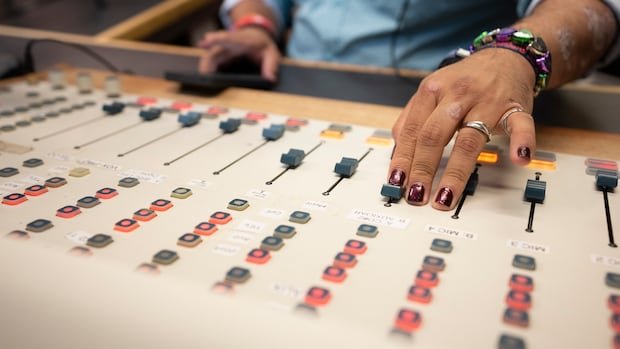Xania Monet, the pioneering AI-generated artist, has made history by breaking into a Billboard airplay chart. This milestone achievement has sparked discussions about the future landscape for human musicians striving for similar success.
The track titled “How Was I Supposed to Know?” debuted on the Adult R&B Airplay chart at the 30th position on November 1. Initially gaining popularity online, especially on platforms like TikTok, the song amassed significant streams and purchases, leading to its debut on both the R&B Digital Song Sales chart and the Hot R&B Songs chart in September.
Crafted by Telisha “Nikki” Jones, a poet and songwriter from Mississippi, Xania Monet (pronounced “zuh-Nī-ah”) delivers Jones’s lyrics set to R&B melodies with the assistance of Suno, an AI music-generation platform.
Jones shared with CBS Mornings that Xania is an extension of herself, emphasizing her as a genuine entity. The seamless transition of Monet’s online presence into radio airplay within just four months has raised concerns about the potential threat AI artists pose to the livelihoods of human musicians, prompting calls for legislative measures to safeguard the rights of real artists.
Tristan (Triz) Douglas, a radio personality at Toronto’s Flow 98.7, remarked that Monet’s music exudes a southern R&B vibe reminiscent of artists like Beyoncé or Fantasia. However, Douglas expressed reservations about promoting an AI-generated artist over a human talent.
Since her online debut in mid-July, Xania Monet has released 44 tracks on Spotify, amassing approximately 769,000 followers on Instagram, YouTube, and TikTok combined, along with 1.2 million monthly Spotify listeners. In September, the AI artist secured a lucrative record deal, although the beneficiaries remain undisclosed.
Monet’s manager, Romel Murphy, explained that the AI artist aims to enhance the authenticity of Jones’s lyrical artistry. Murphy emphasized that AI serves as a tool to elevate their creativity, enabling them to deliver genuine R&B music rooted in real-life experiences and emotions.
Despite acknowledging the potential of AI in music creation, Douglas remains hesitant about featuring AI-generated music on the radio. He stressed the importance of providing opportunities to undiscovered human talent rather than prioritizing AI creations.
The music industry is grappling with the implications of AI’s rapid evolution, particularly concerning the displacement of human artists by technology-driven content creation. Industry experts advocate for regulatory frameworks to address the growing influence of AI in music production, emphasizing the need for human input to ensure copyright protection.
As discussions around legislation to govern AI in the music industry continue, uncertainties persist regarding the appropriate regulatory measures. Entertainment lawyer Miro Oballa highlighted the challenges in legislating AI’s role in music creation, underscoring the industry’s inclination towards AI artists to mitigate risks associated with human inconsistencies.
As the music landscape evolves with advancing AI technologies, industry stakeholders are faced with complex decisions on balancing innovation with safeguarding the essence of human creativity and expression.
[End of Rewritten Article]


